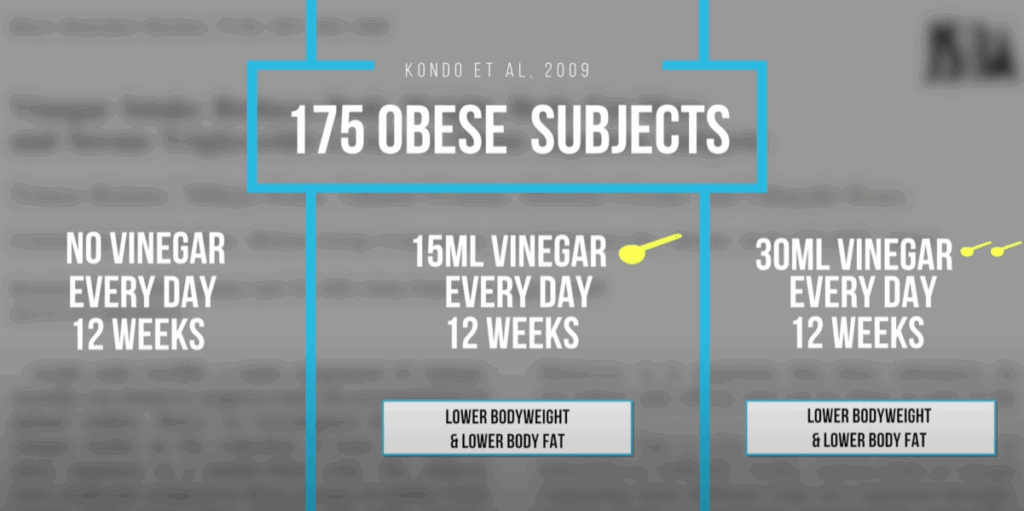Apple cider vinegar (ACV) has been a hot topic in health and wellness circles for years. Touted as a natural remedy for everything from weight loss to acne and digestion, this fermented liquid has gained a reputation as a miracle cure. But how much of that is true—and how much is just marketing?
In this article, we take a science-backed look at apple cider vinegar’s most popular health claims and evaluate whether it truly delivers results, especially when it comes to fat loss.

What Is Apple Cider Vinegar, Exactly?
Apple cider vinegar is created through a two-step fermentation process. First, crushed apples are exposed to yeast, which converts their natural sugars into alcohol. Next, specific bacteria are introduced to convert that alcohol into acetic acid—the main active compound in vinegar.
This process isn’t exclusive to apples; similar fermentation methods can produce vinegar from grapes, rice, barley, coconut water, or even honey. However, ACV stands out for its association with a murky substance called the “mother,” which is found in unfiltered versions and is believed by some to offer added health benefits due to enzymes and beneficial bacteria.
While many enthusiasts swear by the mother’s properties, current research doesn’t differentiate between vinegar with or without the mother. Also, considering stomach acid and digestive enzymes break down proteins and bacteria, the potential benefits of consuming these enzymes likely don’t survive digestion.
Is Apple Cider Vinegar Effective for Weight Loss?
The biggest claim associated with ACV is that it aids in weight reduction. However, the body of research supporting this is quite slim.
The most notable study is a 2009 clinical trial from Japan involving 175 obese adults. Participants were randomly assigned to consume either 0, 1, or 2 tablespoons of vinegar daily over a 12-week period. All participants maintained similar diets, and the vinegar was diluted to mask its taste, effectively blinding the study.
At the end of the trial:
- The placebo group experienced no changes.
- The 1-tablespoon group lost an average of 2.6 pounds (1.2 kg).
- The 2-tablespoon group lost about 4.2 pounds (1.9 kg).
While this seems encouraging, the actual weight loss was modest—and participants regained the weight during a 4-week follow-up. Additionally, the subjects were obese, so it’s unclear if these effects would apply to lean or athletic individuals. Also, dietary tracking was self-reported, which is notoriously unreliable.
In short, while ACV might offer a slight edge, it’s not a magic bullet for fat loss. If anything, its benefits may be limited to individuals already in a calorie deficit and likely more noticeable in people with higher body fat percentages.

Can Apple Cider Vinegar Suppress Appetite?
Some suggest that ACV may help reduce appetite and increase satiety. A small 2013 study found that people who consumed vinegar with breakfast reported feeling fuller. However, participants also reported mild nausea—which likely contributed to the reduced appetite.
That’s hardly an ideal or sustainable way to control hunger. More effective and practical appetite-regulation strategies include:
- Increasing fiber intake (vegetables, legumes, whole grains)
- Drinking water before meals
- Eating slowly and mindfully
Using vinegar to make yourself feel unwell is not a healthy solution for managing hunger.
Blood Sugar and Insulin: Where Vinegar Might Actually Shine
While its weight loss claims are shaky, apple cider vinegar may have legitimate benefits when it comes to blood glucose management.
A 2017 meta-analysis examined 11 studies and found that vinegar consumption significantly improved post-meal blood sugar and insulin levels—especially in individuals with insulin resistance or type 2 diabetes. Notably, several of these studies used apple cider vinegar specifically, while others used different types of vinegar, suggesting that the acetic acid is the key ingredient responsible for these effects.
However, the glucose-lowering effect seems to depend on the type of carbohydrates consumed. ACV is more effective when paired with complex carbs like whole grains or starches. Its impact is minimal when consumed with simple sugars (e.g., soda, candy), which is ironically when blood sugar spikes the most.
This is because vinegar slows the breakdown of starches, thereby reducing the glycemic response—but this effect is irrelevant if you’re not consuming starches in the first place.

Other Health Claims: What Holds Up and What Doesn’t?
Let’s briefly touch on other commonly claimed benefits of apple cider vinegar:
1. Skin Health and Acne
Some believe ACV can clear acne or help with skin tone due to its antimicrobial properties. However, applying undiluted vinegar directly to the skin can cause chemical burns, irritation, or worsen acne. Dermatologists generally recommend safer, clinically supported treatments for skincare.
2. Digestive Health
Supporters claim that ACV enhances digestion or serves as a prebiotic. While the “mother” contains some types of bacteria, they are not proven probiotics. Moreover, whole apples are far richer in actual prebiotic fibers and nutrients that support gut health.
3. Tooth Whitening
Despite anecdotal claims, this is not a safe practice. Vinegar is highly acidic and can erode tooth enamel with repeated use. Dentists recommend avoiding acidic substances for oral hygiene and sticking to fluoride-based products.
4. Heart Disease and Cancer Prevention
Some animal studies suggest acetic acid may have protective effects against cardiovascular issues and certain cancers. However, human data is lacking, and no reputable health organizations endorse ACV for these purposes.
5. Household Cleaning
While vinegar has disinfecting properties, commercial cleaning agents are generally more effective for killing germs and bacteria in the home.
Should You Add ACV to Your Diet?
If you enjoy the taste and want to include ACV as part of a vinaigrette or diluted in water, there’s little harm in doing so. It may modestly support blood sugar control—particularly if you have insulin resistance—and could offer minor digestive benefits for some people.
However, don’t expect miracles. If your goal is fat loss, your efforts will be far better spent focusing on:
- A structured training program
- A calorie-controlled, protein-rich diet
- Proper sleep and stress management
- Consistency over weeks and months
No supplement or tonic can override the importance of energy balance and lifestyle fundamentals.
Conclusion: Is the Apple Cider Vinegar Hype Justified?
In the end, apple cider vinegar is no cure-all. While it may offer some benefits for blood sugar regulation, its effects on fat loss, appetite, skin, and other health outcomes are either exaggerated or unsupported by strong scientific evidence.
For those with insulin resistance or type 2 diabetes, incorporating a little vinegar with meals might help. But for the average healthy person trying to lose weight or improve wellness, there’s no reason to rely on apple cider vinegar when real, whole foods and evidence-based habits are more effective.
If you’re tempted to try it, go ahead—but don’t expect it to be the secret weapon that transforms your physique.



